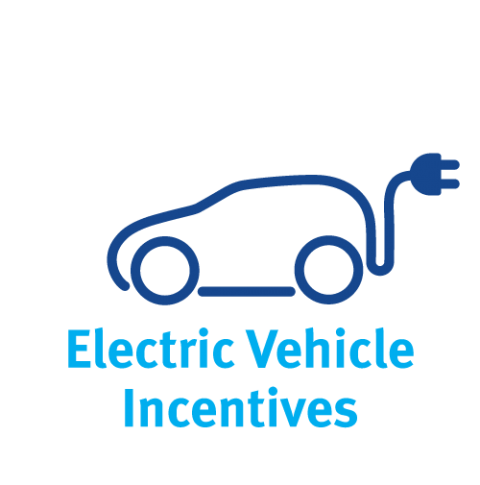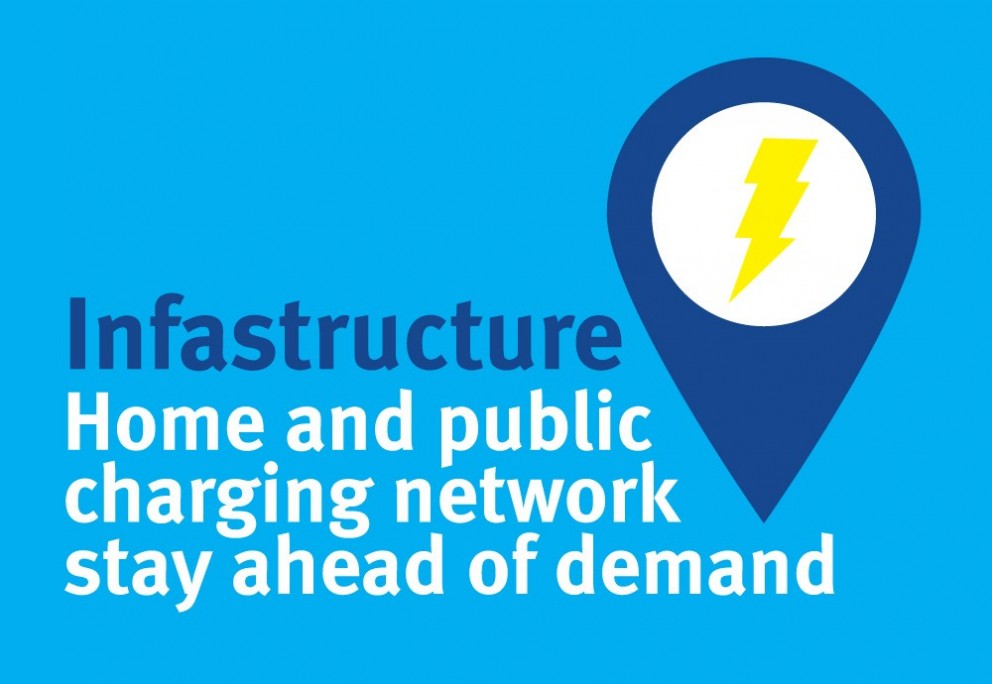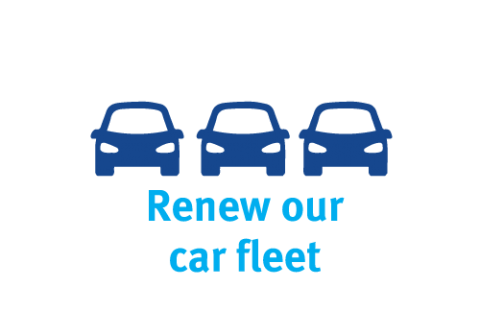SIMI is the official voice of the Motor Industry, we represent over 1200 member companies who come from a variety of sectors within the Industry. Over 40,000 people are employed around Ireland. Our Industry contributes over 6 Billion in motor related taxation to the Exchequer.
Budget 2024 Measures
Budget 2024, announced (10.10.2023) by Minister for Finance Michael McGrath, contains some measures specific to motoring:
Budget Measures
- VRT – no increases in VRT for EVs or ICE vehicles.
- VRT Relief on EVs – this was due to expire at the end of this year, but has been extended for a further two years out to the end of 2025.
This means EVs with a value of €40,000 will continue to pay no VRT, while the tapering relief between €40,000 and €50,000 also remains in place. - Benefit-in-Kind
- The €10,000 deduction applied to Original Market Value Deduction for certain categories of vehicles is extended for 2024.
- Extension of EV tapering mechanism applied to BIK relief for Electric Vehicles of €35,000 to 31/12/2025, €20,000 in 2026 and €10,000 in 2027
- When the two extensions above are combined the 0% threshold for BIK on EVs will be:
- €45,000 in 2024 (the same as 2023)
- €35,000 in 2025
- €20,000 in 2026
- €10,000 in 2027
- Other motor related taxes
- Excise on petrol/diesel – extension of reliefs due to expire on Oct 31st
- Increase will now be - 50% on April 1st 2024; 50% on Aug 1st 2024.
- Increase in Carbon Tax from Oct 11th as scheduled
- Accelerated Capital Allowances on EVS – extended for 3 years
- Excise on petrol/diesel – extension of reliefs due to expire on Oct 31st
Commenting on Budget 2024, The Society of the Irish Motor Industry (SIMI) Director General Brian Cooke:
“SIMI welcomes the measures announced in today’s Budget, in particular the extension of the current VRT and Benefit-In-Kind (BIK) reliefs for Electric Vehicles. In addition, the retention of the current VRT regime allied with the EV reliefs provides stability and clarity to the Motor Industry and motorists at a time of great uncertainty. The EV supports underline the Government’s commitment towards the electrification of the national fleet, which is of critical important as we strive to meet our emissions’ reduction goals. We still await clarification of the ongoing investment in both the charging infrastructure and the SEAI purchase grants, which are also vital to the ongoing success of the EV project.”
What we are looking for in Budget 2024
Budget 2024 will play an important role in the step towards decarbonisation. Our Industry remains fully committed in helping to achieve the Governments ambitious climate targets. These goals can only be achieved using a joint, coherent approach, with the Government and the Motor Industry working closely together to ensure the right measures are implemented to encourage positive behavioural changes as quickly as possible.
We are still in the early stages of the electric vehicle project. This is at a time where EV subsidies are being phased out. The SEAI Grant was reduced by €1,500 in July 2023, the threshold for 0% Electric BIK has been reduced and the EV VRT relief is due to expire at the end of this year. It is important that additional funding is made available for Zero Emission Vehicles Ireland (ZEVI) to maintain the current levels of EV supports and to invest in the national charging infrastructure. NOW is the time to invest in the EV Project.
we have a long way to go to meet the challenging targets in the Government’s Climate Action Plan. In this context it is essential that Government supports both consumers and businesses by extending EV incentives at current levels in the forthcoming Budget. By doing this we can help secure a greater supply of Electric Vehicles for the Irish market, increase new EV sales in the short term and create an active used EV market, which will make an electric vehicle affordable to a wider constituency of motorists.
In addition, if we want to speed up the removal of the oldest highest emitting vehicles from the national fleet, Government should refrain from any further taxation increases. This would encourage activity in both the new and used car markets, allowing motorists to trade up to a cleaner new or newer more fuel-efficient car. While investment in the national charging infrastructure is essential, it must be reliable and remain ahead of demand, to provide consumers with confidence in the EV project.
Budget 2024

1. Maintain EV supports out to 2026 and retain the current 0% Benefit-in-Kind
- Retain the current 0% Benefit-In-Kind €45,000 threshold for EVs.
- Extend the EV VRT Relief that is due to expire at the end of 2023.
- Retain the current level and thresholds for the SEAI purchase grant.

2. No VRT increases, grow the new car market to create a strong second-hand EV market
- No changes passenger car VRT or Road Tax.
- No changes to the basis of LCV VRT, which could prove destabilising and counterproductive.
- Introduce new business incentives to purchase Battery Electric Vehicles (BEVs).
- Examine new incentives to renew the fleet, scrappage/swappage, low cost loans.

3. Invest in an improved and reliable EV charging infrastructure, to stay ahead of demand
- Increase the level of funding allocated to the EV transition project.
- Charging infrastructure stays ahead of demand.
- Consumer must have confidence in the EV project.
To achieve this SIMI proposes:
- VRT/Road Tax – no increases; Vehicle Manufacturers are already driving down CO2 (29% reduction in new cars 2019-2023 average C02 WLTP)
- Extending current VRT relief for Electric Vehicles
- Retain the current levels and thresholds for the SEAI purchase Grant for Electric Vehicles
- Retain current 0% BIK for EVs
- Re-introduce SEAI Grant for company cars/VAT Reclaim on purchase/lease costs
- State investment support for a reliable charging infrastructure remaining ahead of demand


No increase in Taxation on Motorist VRT/Road Tax
A reduction in VRT to stimulate growth in new car sales thus providing a cleaner, greener car fleet which will result in reduced emissions and cleaner air quality. This will protect jobs throughout the country and helps us all to achieve our climate change objectives.
Reduce emissions by renewal of our national fleet
Our national car fleet has gone from one the youngest in Europe to one of the oldest, in 2008 the average age of a car was 6 years old. The average overall age is 9.4 years. Average age of a diesel car is 9.3 years. Average age of a petrol car is 11 years

With over 2.7 million vehicles currently in the national fleet, there will continue to be a large number of Internal Combustion Engine (ICE) vehicles in the Irish Fleet, even beyond the next 10 years, all of which will require servicing for many years to come. For many motorists it will take time to transition from internal combustion engines as the cost to change even with incentives is not a viable proposition. The Motor Industry is committed to Zero emissions. it is important that we reach these goals in a measured and realistic way.
Create customer certainty around a road map to alternatives fuel vehicles 2025
In order to make the transition to alternative vehicle technology consumers must have confidence in proposition. If we want to make progress then we must have certainty for consumers where incentives and supports are provided. Funding from Government needs to be provided to re-introduce the supports for company vehicles and infrastructural changes to support the move to low emission vehicles.

- The Motor Industry is fully supportive of a transition towards zero emissions, as the suppliers of cleaner technology, we are part of the solution and will work with all the relevant stakeholders.
- Change can happen with the right measures, and sensible policies aimed at encouraging motorist to make the right choices can lead to clean affordable and convenient mobility solutions.
- During the transition to a world of Zero-Emitting Vehicles (ZEVs), we need to ensure that current diesel, petrol and hybrid vehicles are not devalued through negative or punitive measures by the State as this would significantly increase the cost for consumers to change from their current diesel/petrol car to a new Electric Car.
- New technologies bring new opportunities and the creation of Autonomous, Connected, Electric and shared technologies will offer potential for high calibre job creation and significant economic growth. Ireland is well positioned to play a leading role in developing the technology and to be at the forefront of this knowledge creation.
Effective Mobility Management
SIMI believes that car ownership remains a requirement for successful living for many people in Ireland, particularly outside of large metropolitan areas. While not directly involved, SIMI supports the Government to consider improved mobility management.
Industry Challenges
• Geo-political uncertainty
• Rising Inflation/Interest rates
• Recruitment
• Cost of living crisis
• Consumer Confidence
• Outlook uncertain